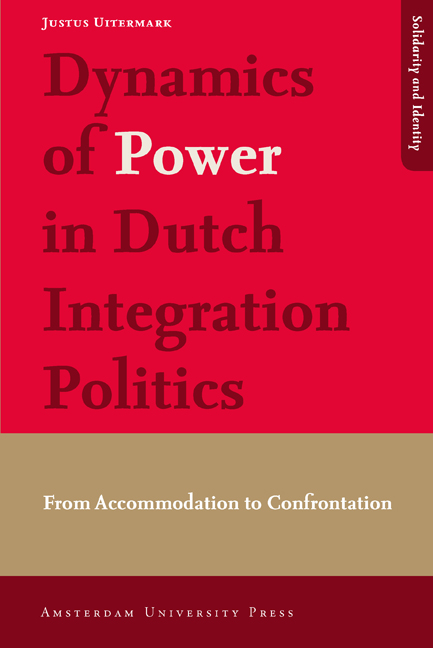6 - Contesting Culturalism: Anti-racism, Pragmatism and Civil Islam
Published online by Cambridge University Press: 15 January 2021
Summary
The previous chapter noted that culturalists were prominent in successive episodes of integration politics. But it also became clear that the power of Culturalism was ambiguous and contested. In this chapter we investigate actors who promoted alternatives to Culturalism, focusing in particular on three discourses: Antiracism, Pragmatism and Civil Islam. Supporters of these discourses criticized Culturalism for polarizing society and stigmatizing minorities, but did so for very different reasons. As the opponents of Culturalism do not form a coherent group (Chapter 5), this chapter first dissects the integration debate through a correspondence analysis of the different discourses and their promoters. The subsequent sections explore the milieus where these discourses were cultivated, identify their bases of support and analyze their relationships to Culturalism.
Alternatives to Culturalism
To explain the presence and power of the many critics of Culturalism, I use the properties database introduced in Chapter 3. Through a correspondence analysis of the authors and the discourses they promote, we can examine the discourses’ distinct bases of support. Figure 6.1 presents the results of this multiple correspondence analysis. As we would expect, Culturalism finds support among right-wing politicians. We also see that contributors to the newspaper Trouw are prominent supporters of Culturalism, due to the efforts of the editors of the Letter & Geest section. The “small minority” group is close to Culturalism; it includes non-Western immigrants but not those from the four largest groups living in the Netherlands (Moroccans, Turkish, Surinamese and Antilleans). This group includes people like Ayaan Hirsi Ali and Afshin Ellian who criticize the minority groups living in the Netherlands for failing to meet the standards of the Enlightenment. They urge the Dutch to become more militant and passionate about defending liberal democracy against the alleged threat posed by radical Islam. The figure shows that the large minority groups, in contrast, support Anti-racism and Civil Islam. The results, in short, confirm and refine the analysis of Culturalism in the previous chapter.
What about the other discourses? With the aid of correspondence analysis and Table 6.1, the subsequent sections discuss first Anti-racism, then Pragmatism and finally Civil Islam.
- Type
- Chapter
- Information
- Dynamics of Power in Dutch Integration PoliticsFrom Accommodation to Confrontation, pp. 121 - 152Publisher: Amsterdam University PressPrint publication year: 2013

